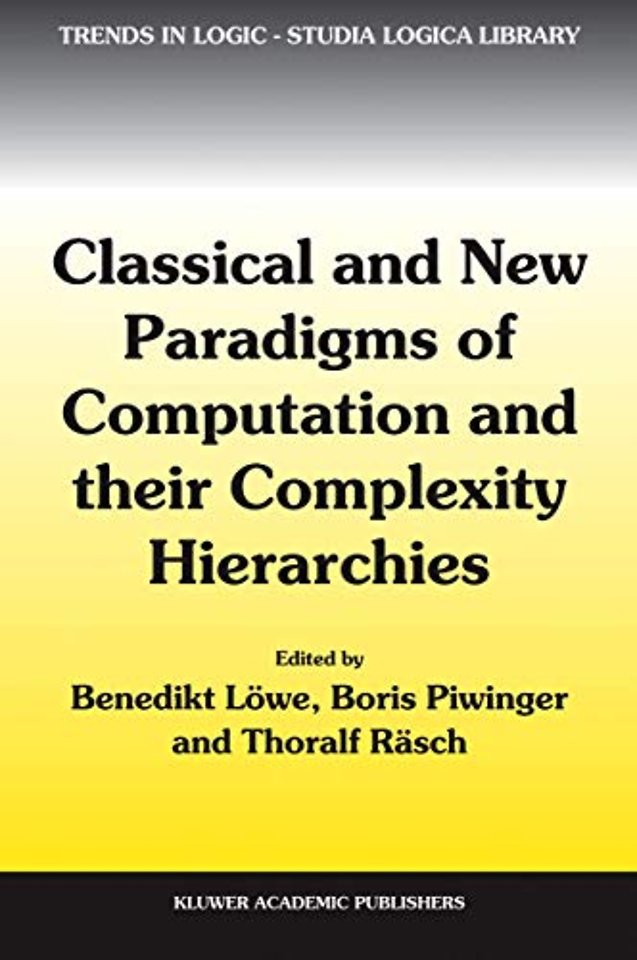Classical and New Paradigms of Computation and their Complexity Hierarchies
Papers of the conference "Foundations of the Formal Sciences III"
Samenvatting
The notion of complexity is an important contribution of logic to theoretical computer science and mathematics. This volume attempts to approach complexity in a holistic way, investigating mathematical properties of complexity hierarchies at the same time as discussing algorithms and computational properties. A main focus of the volume is on some of the new paradigms of computation, among them Quantum Computing and Infinitary Computation. The papers in the volume are tied together by an introductory article describing abstract properties of complexity hierarchies.
This volume will be of great interest to both mathematical logicians and theoretical computer scientists, providing them with new insights into the various views of complexity and thus shedding new light on their own research.

